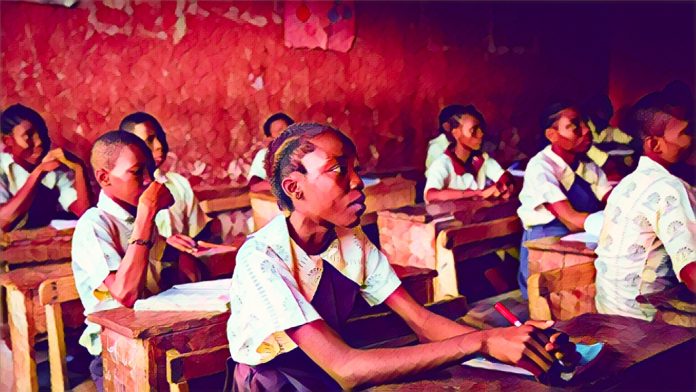Key Points
- Inadequate funding limits resources and impacts quality education delivery.
- Poor infrastructure and overcrowding hinder effective learning environments.
- Addressing teacher shortages is critical to revitalize Nigeria’s education.
It’s generally acceptable that national growth and empowerment depend mostly on education, Nigeria’s educational system suffers major obstacles.
Millions of children and young adults have not received excellent education due to these obvious challenges. Though with the biggest economy in Africa, the nation struggles with everything from obsolete courses to insufficient funds. Five main issues facing Nigeria’s educational system are listed below together with practical solutions.
-
Insufficient funding
The Nigerian educational system has been suffering from a consistent underfunding of funds required for its growth and effective operating capacity.
Federal and states have progressively budgeted a small proportion of funds for education than the United Nations recommended fifteen to twenty percent of national budgets. Neglect has brought about poor facilities, poor or inefficient teaching equipment, and low teacher remunerations.
The government has to give education top priority if it is to solve this problem by greatly raising the annual budget allocation to either meet or beyond world recommendations. Furthermore crucial is open usage of money to guarantee that resources are focused where they are most required. Public-private partnerships (PPPs) can also help close the gap left by government finances by helping to organize money for teacher training, classroom tools, and school infrastructure.
-
Bad infrastructure and packed classrooms
As stated by B scholarly, many Nigerian schools have either poor or completely lacking essential facilities including classrooms, bathrooms, and libraries. In rural places, where packed classrooms are typical and create an environment that compromises good learning and teaching, this is especially troublesome.
To go beyond this, governments should begin large scale school refurbishment and expansion schemes in order that existing structures do fulfill at least basic requirements. Especially in poor areas, the construction of more schools can provide help as regards over crowdedness and improve the conditions of learning.
On this plane, local communities can help creating a feeling of duty and ownership while assisting construction and maintenance initiatives for schools alike.
-
Academic staff shortage
Academic staff shortage has always been an issue in Nigeria and this is truer more especially in rural areas where the problem of inadequate qualified teachers persists. Some of the current teachers received many of their training years back and therefore they lack modern tools which determine their ability to impart quality education.
That coupled with low pay and unpleasant working conditions makes it even worse for the gifted people to take up teaching jobs.
Perhaps, governments must recruit more teachers to teach in classrooms, and at the same time increase teachers’ wages and quality of working life in order to address this problem. Such programme have to be established so as to offer new means and methods of teaching for the educators on an ongoing basis.
By offering such incentives like houses, transport subsidies and career progress opportunities in rural areas teachers can be encouraged to teach far-off areas.
-
Outdated agenda of instruction
A high number of educational institutions in Nigeria use archaic curriculum that does not meet the social-reality standards. They more often than not exclude influential subject areas such as STEM and lacks valuation for entrepreneurship and high-tech skills leaving pupils equipped for the workforce unknowingly.
As stated by Business Day, a high number of educational institutions in Nigeria use archaic curriculum that does not meet the social-reality standards. They more often than not exclude influential subject areas such as STEM and lacks valuation for entrepreneurship and high-tech skills leaving pupils equipped for the workforce unknowingly.
-
Access and equality problems
As stated by Unicef, millions of Nigerian children—especially girls and those living in rural or conflict-torn areas—have great obstacles to their education. Poverty, cultural customs, and insecurity among other things help to explain the large numbers of out-of-school children; girls are particularly impacted.
Pragmatically, the cases of free and, moreover, compulsory education laws are to be adopted to guarantee fair rights for underprivileged people and facilitate their access to education. Efforts meant to counter gender prejudices in policy —including scholarships, mentoring, and public sensitization initiatives—can encourage more girls to pursue the programme.
Improving the security around schools is another way of eradicating insecurity within such countries because it fosters safety of teachers and kids in areas of conflict.
Indeed, the Nigerian education system find itself at a crossroad at the moment. Despite their presence, shortcomings such as inadequate funding, poor instructional facilities, short supply of teachers, out of date syllabi, and access blockers are not unworkable.
The management of these problems requires the formulation of an operational cluster that would involve the government, the business world, and residents of the affected regions.
Education should be Nigeria’s highest priority because when properly prioritized and targeted interventions are applied, the country can design an education system that prepares its people with the knowledge and skills needed to support sustainable development efforts



